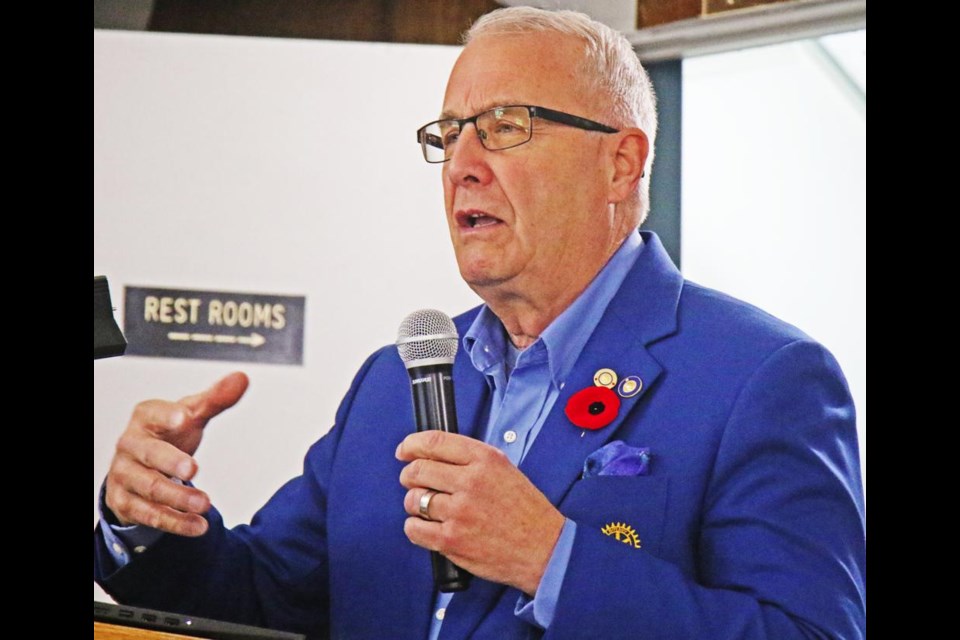WEYBURN – Service clubs and organizations in Weyburn and across Canada are starting to recover and rebuild after suffering through two years of COVID restrictions, and the Weyburn Rotary Club is no exception.
Recently Rotary Clubs across District 5550, which encompasses clubs in Saskatchewan, Manitoba and Northern Ontario, conducted a membership survey to find out how they did coming out of COVID, and what challenges lie ahead as they move forward and look to resume normal activities and fundraisers.
Sonja Susut, district governor-elect for the district and a member of the Moose Jaw Wakamow Rotary Club, spoke to the Weyburn club about the survey results, with a view to what issues they should address, including sharing the results from the Weyburn club itself. More recently, on Thursday the district governor, Fred Wright, dropped by to speak to the club and referenced many of these survey results.
The first part of the survey looked at the reasons people had for joining and for staying in a Rotary Club. The district and the Weyburn club mirrored each other as the top two reasons for joining Rotary, and staying in the organization, were to have an impact locally, and for friendship and fellowship.
For the question on what members like best about Rotary, camaraderie and fellowship was the strongest reason for the Weyburn club, followed by being involved in projects in the community, and having good speakers at the meetings.
Asked what they like least about being in Rotary, members across the district were fairly happy with their clubs, with small numbers disliking aspects such as resistance to change, outdated attitudes or being asked to donate too often.
In the Weyburn club, one of the few responses of note was the feeling of having too many meetings. The club was split fairly evenly on the question of feeling comfortable about expressing concerns to club leaders.
Asked to list barriers to being more engaged in the club, several items were expressed across the district, but the Weyburn club only had two: work commitments and family commitments.
Where 31 per cent of members across the district said COVID was a barrier, this was not a barrier for the Weyburn members at all.
Asked what the club is doing well, the top two things for the Weyburn members was having good financial management, and having good fellowship, followed by keeping members well-informed, while attracting new members was not a strength.
This last point is a struggle right across the district, noted Susut, as every club reported they are dealing with declining member numbers, particularly coming out of COVID.
“They’re all experiencing what we’re experiencing. It’s not just Saskatchewan, it’s all (clubs),” said Susut.
A question on future challenges named the issue of declining membership as the top issue both for the Weyburn club and right across the district, followed by the aging of members. Recovery from COVID and a lack of community relevance were noted as somewhat of a concern.
Asked what members wanted their clubs to spend more money on, community service was the top one for Weyburn, followed by youth service and club service and fellowship.
On the issue of limitations to fundraising, the biggest issue for the Weyburn was access to major sponsors, followed by member fatigue.
Both the Weyburn club and clubs across the district stated a need for the district to help them be more relevant to younger generations as the top need, along with help rebuilding membership, and promoting the club to the public.
Wright noted that Rotary provides opportunities for youth, through exchanges and the RYLA leadership camp, and life-changing help through aid projects, at home and overseas through Rotary International.
“We make a difference in the lives of some of those kids. We also need to save Rotary for the community,” he said, adding a suggestion the club should plan for an engagement event with the community, and find out what needs they can meet in the community, whether a project on their own or helping out another service club in the city.






